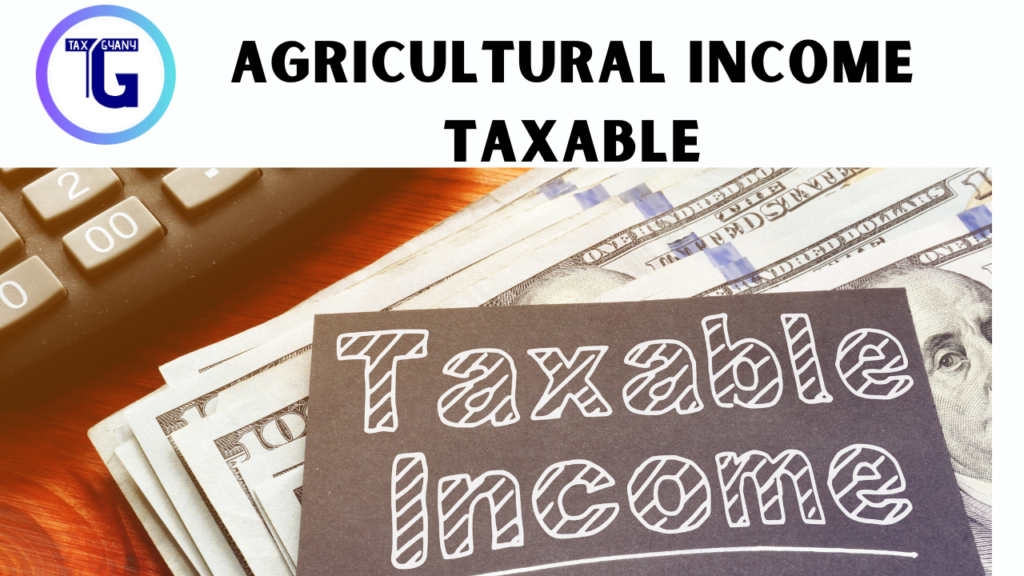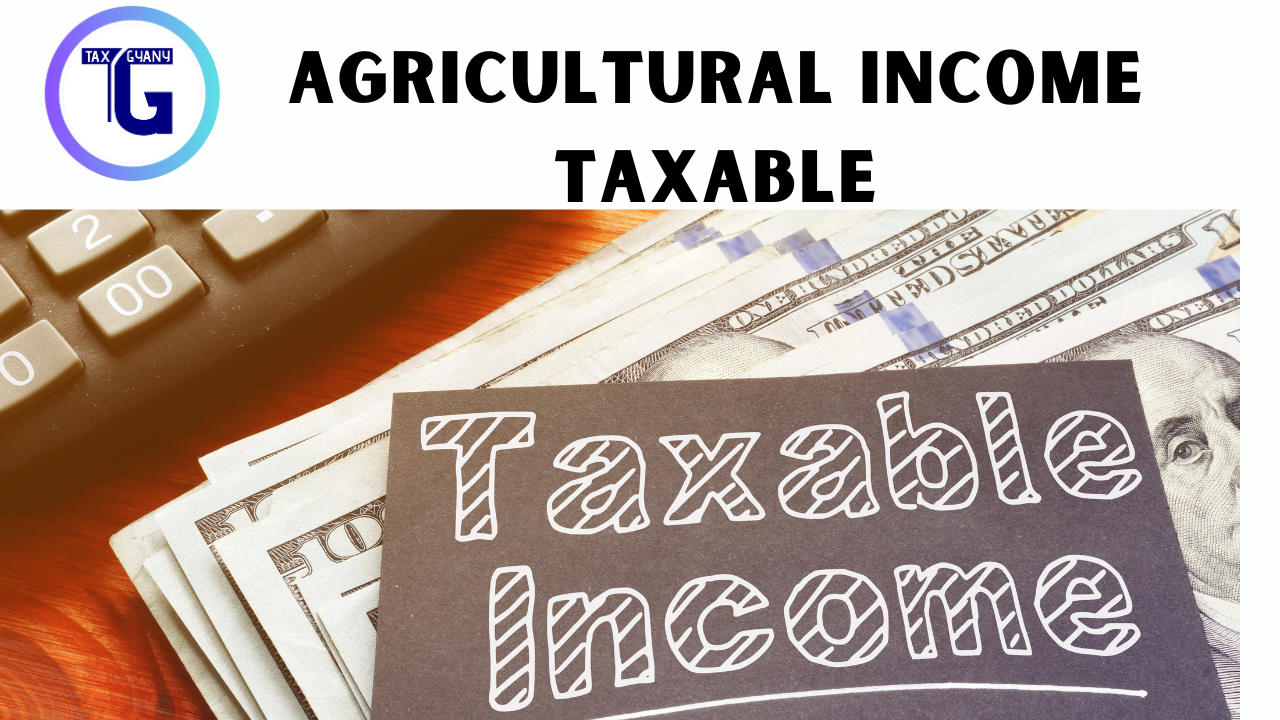Agricultural Income Taxable The Taxation of Agricultural Income is a topic of confusion and misconception among many Taxpayers. While some believe that all income, including agricultural income, is taxable, others are under the impression that agricultural income is entirely tax-free. In this blog post, we’ll delve into the nuances of agricultural income taxation, dispelling myths and providing clarity on whether agricultural income is taxable.
Understanding Agricultural Income Taxation :Agricultural Income Taxable
- Legal Provisions
In many countries, including India, agricultural income is exempt from income tax under the Income Tax Act. Section 10(1) of the Act provides for the exemption of agricultural income derived from land situated in India and used for agricultural purposes.

- Taxation of Other Sources
While agricultural income is generally tax-free, taxpayers may have other sources of income, such as salary, business profits, capital gains, and rental income, which are taxable under the Income Tax Act.
Determining Taxability of Agricultural Income
- Threshold Limits
Agricultural Income Taxable In some cases, agricultural income may become taxable if it exceeds certain threshold limits prescribed by the tax authorities. These limits vary across jurisdictions and depend on factors such as the nature of agricultural activities and total income from all sources.
Non-Agricultural Activities
Agricultural Income Taxable Income derived from non-agricultural activities conducted on agricultural land, such as leasing out land for commercial purposes or setting up non-agricultural businesses, may be taxable under the respective income tax provisions.
- Income from Agro-processing and Value Addition:
Income derived from agro-processing activities, such as milling, canning, or food preservation, may be subject to different tax treatment compared to primary agricultural income. Taxpayers should understand the tax implications of value-added activities related to agricultural products.
- Compliance and Documentation:
Taxpayers must maintain accurate records and documentation of their agricultural income, expenses, and transactions to comply with tax regulations. Proper record-keeping facilitates tax filing, audits, and substantiation of income sources.
Professional Advice and Consultation:
Seeking advice from tax professionals, accountants, or agricultural specialists can help taxpayers navigate the complexities of determining the taxability of agricultural income. Professionals can provide guidance on tax planning strategies, compliance requirements, and maximizing available tax benefits.
Implications for Taxpayers
- Compliance Requirements
Taxpayers engaged in agricultural activities should be aware of the tax implications associated with their income and ensure compliance with applicable tax laws and regulations.
- Consultation with Tax Advisors
Seeking advice from tax advisors or chartered accountants can help taxpayers navigate the complexities of agricultural income taxation and optimise their tax planning strategies effectively.
Taxable Income Calculation:
- Taxpayers must accurately calculate taxable income from agricultural activities, considering revenue from crops, livestock, dairy, and related sources.
Tax Exemptions and Deductions:
- Taxpayers may benefit from exemptions or deductions on agricultural income and related expenses, reducing their overall tax burden.
- Capital Gains Tax:
Taxpayers may incur capital gains tax on profitable sales of agricultural assets, necessitating understanding of applicable rates and exemptions.
- Income Averaging:
Some jurisdictions offer income averaging options, allowing farmers to spread income over multiple years for tax purposes, mitigating fluctuations.
Tax Planning Strategies:
Taxpayers can employ various strategies to minimize tax liabilities, including timing income and expenses, utilizing deductions, and seeking professional advice.
Conclusion
In conclusion, while agricultural income is generally exempt from income tax in many countries, taxpayers should be mindful of the specific provisions and thresholds that determine the taxability of agricultural income. Understanding these nuances is essential for ensuring compliance with tax laws and maximising tax benefits. By debunking myths and gaining clarity on agricultural income taxation, taxpayers can make informed financial decisions and navigate the tax landscape with confidence.
Sources : https://cleartax.in/s/agricultural-income
For More Information : https://taxgyany.com/

